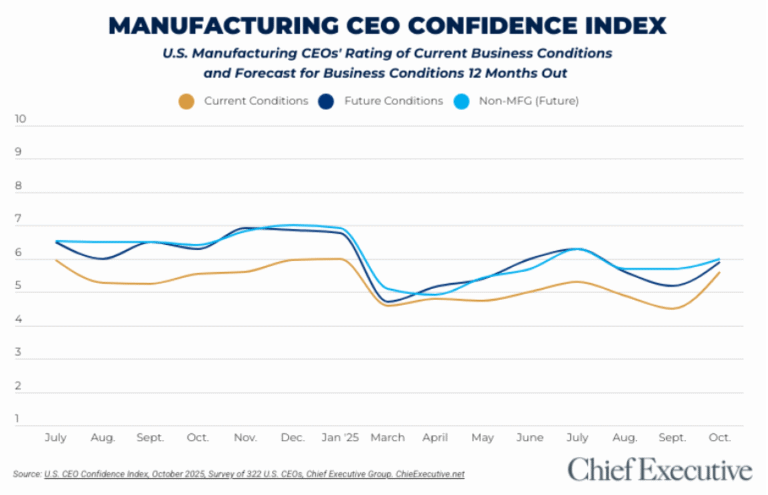
In today’s customer-centric business environment, it’s becoming more and more common for executives with marketing backgrounds to take over the CEO position, thanks in part to their deep knowledge of clients and their needs.
For Lola.com CEO Mike Volpe, his time as chief marketing officer for marketing technology giant Hubspot left him with an abundance of valuable experience that he relies on when leading the agile travel management solutions provider.
Chief Executive spoke with Volpe about how his time as CMO has informed him in his new role, the importance of company culture at Lola.com, the keys to building a winning team and his thoughts on effectively managing growth within an organization. Below are excerpts from the conversation:
On how his CMO experience informs him as CEO
I think that [CMOs becoming CEOs] is becoming more and more popular for a few reasons. One is that I think marketing in the past 10 years has had a stronger and stronger impact on strategic impact of the company and has been playing a stronger and stronger role in driving revenue. Especially when you think about selling to small-mid size businesses, or even in the consumer space with e-commerce and digital, marketing starts to play a stronger and stronger role in actually driving revenue. I think that that’s one reason why I think it’s becoming a more popular route.
I would say, from my perspective, I learned a ton about the importance of customers, the importance of communication, the importance of demand generation, understanding all of the marketing and sales process. There’s a ton that I’ve learned that has been really, really valuable. And I think if you do marketing you have at least a copilot seat with the sales organization, which is obviously a very important thing to learn, before you become CEO, as well. I feel like it served me pretty well, although I’ll definitely say that I think many marketers have some major blind spots as well.
If you grow up through marketing you understand all the different technologies that allow you to connect one-on-one with customers and really understand all the different customer segments, and interact with them in different ways, having that knowledge can be really useful because it gives you as a CEO an understanding of what are the different go-to-market methods that are possible today, and you can use that knowledge to help influence the strategy that you’re building.
On company culture at Lola.com
We have a very entrepreneurial culture that embraces a lot of ownership and accountability. And I think we really try to embrace the idea of being a very loving culture. A lot of that comes from our founder’s mentality. He does a ton of nonprofit work, he’s known for having a gigantic heart. And that doesn’t mean that we don’t give people hard feedback, it doesn’t mean we don’t hold them to achieving results and things like that. But it means that when we’re giving people feedback, or we’re disagreeing with them, or even in the rare instance where we need to part ways with someone, we try to do it in the most loving way possible. And so I think that’s something that’s really unique. I think a lot of businesses can either be all fun and games or they can be overly direct and harsh and we try to be sort of very results-oriented. Hold people to accountability but do it in a very loving way.
On managing growth
I think growth is one of the things that is incredibly fun and the desired state of every company in the world is that most of their problems are coming from how fast they’re growing, not because of other problems with their business, and I’ve definitely seen that. I mean, there were definitely years at HubSpot where the problems we were having were because we have so many new employees and so many new sales reps starting and so many new regions that were opening up and doing marketing for the first time and things like that. It can be a challenging time but it’s a really fun and gratifying time that you’re able to take a step back and realize sort of what you’ve achieved.
And so, my advice for most people that find themselves in those situations is, first off, congratulate yourself and realize that you’re in the top 1% of businesses in terms of having that be your major problem, that is things related to your growth. And then I’d say the second thing is that, do as much as you can to overcommunicate. I feel like since I’ve come in here at lola.com, there are many days where I come home at the end of the day having lost my voice just because I spent so much of my time and so much of my day communicating with different people about things related to our growth. Why are we hiring more salespeople? And what are they going to do? And how is that team going to scale through, to what do we need from the product team in order to support all the new customers that are coming on board, to reassuring our customer service team that we’re going to continue to grow and invest in that team, so they won’t be overwhelmed with all these new customers.
All of those things, and really, a lot of it just boils down to communication and being as open as possible. So, I spend a lot of my time just chatting with employees, groups of employees, individual employees, things like that. We use Slack here and I have a channel within Slack that is called “Volpe Braindump,” and I try to post things there that might not warrant a company-wide email but it’s just something that’s been on my mind. And it gives people a chance to peek inside my head and have a view of where we’re going. I think one of the best things you can do as CEO is be as open as possible and let people into your thought process. I think people that just want to communicate only final decisions and only the essential information to companies, you lose people along the way.
I think in this day and age, people want a little bit more transparency to understand where people are coming from. In fact, I’ve got a board meeting later this week, and I’m going to post later today even before the board meeting, something like, “Hey, I’m looking forward to the board meeting. Here are some of the things I think we’re going to discuss. I don’t have all the answers. I’m looking for the board to kind of digest a couple of these strategic topics and give us their advice,” things like that. And I don’t think the CEO 10 years ago would have done that, but I think the CEO of today needs to do that in terms of their openness and transparency and communication.
On building the right team
This is an area where I actually think the marketing background really helps you as a CEO. I think, fundamentally, recruiting is really a marketing exercise and helping to build a great employment brand, gain a lot of visibility for your company is a phenomenal place to work that has very challenging things for people to work on, and to be known for that is really the core of being able to recruit great talent and to do that over time.
One of the things we’re starting to do more is just talk to the whole world about how great it is to work here, the really talented people that we have here, the really big and interesting problem that we’re addressing and be more public with all those things, just try to talk to the world about it a little bit more to help us in those recruiting efforts. That’s the only thing you can do is really build a great employment brand in order to help your recruiting scale, otherwise you need to hire more and more recruiters in order to hire more and more people because it becomes very linear. If you want non-linear growth in your recruiting capabilities that really needs to be based on building up a great employment brand and something that you can use to attract a lot of people to apply it and want to work at your company. And that’s definitely something we started to focus on.
Related: Q&A: Slated CEO Stephan Paternot On Why Culture Is Key




0

1:00 - 5:00 pm
Over 70% of Executives Surveyed Agree: Many Strategic Planning Efforts Lack Systematic Approach Tips for Enhancing Your Strategic Planning Process
Executives expressed frustration with their current strategic planning process. Issues include:
Steve Rutan and Denise Harrison have put together an afternoon workshop that will provide the tools you need to address these concerns. They have worked with hundreds of executives to develop a systematic approach that will enable your team to make better decisions during strategic planning. Steve and Denise will walk you through exercises for prioritizing your lists and steps that will reset and reinvigorate your process. This will be a hands-on workshop that will enable you to think about your business as you use the tools that are being presented. If you are ready for a Strategic Planning tune-up, select this workshop in your registration form. The additional fee of $695 will be added to your total.

2:00 - 5:00 pm
Female leaders face the same issues all leaders do, but they often face additional challenges too. In this peer session, we will facilitate a discussion of best practices and how to overcome common barriers to help women leaders be more effective within and outside their organizations.
Limited space available.

10:30 - 5:00 pm
General’s Retreat at Hermitage Golf Course
Sponsored by UBS
General’s Retreat, built in 1986 with architect Gary Roger Baird, has been voted the “Best Golf Course in Nashville” and is a “must play” when visiting the Nashville, Tennessee area. With the beautiful setting along the Cumberland River, golfers of all capabilities will thoroughly enjoy the golf, scenery and hospitality.
The golf outing fee includes transportation to and from the hotel, greens/cart fees, use of practice facilities, and boxed lunch. The bus will leave the hotel at 10:30 am for a noon shotgun start and return to the hotel after the cocktail reception following the completion of the round.